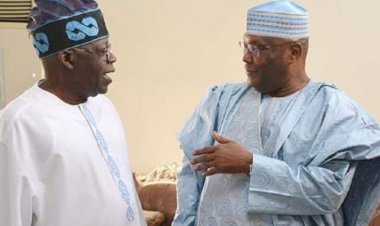Lack of pride in local products: Africa’s automakers struggle for sales

The African automobile industry is one that needs rigorous attention because of the potentials it carries. Due to the demand for automobiles in Africa, the market value of the sector has increased drastically. Modern Intelligence earlier valued the continent’s automobile market to cost USD 28.45 billion in 2020 with a high expectation of the figure reaching USD 39.87 billion by 2026.
This growing market has drawn the attention of many foreign multinational manufacturers such as Toyota, Volkswagen, Nissan among others who keep setting up production plants in different parts of Africa. Countries such as Ghana, Rwanda, Kenya, Nigeria, South Africa and many others have been covered by these Multinational companies.
Apart from the foreign producers, Africa’s local automobile sector has seen a steady growth over the years with highly skilled manufacturers from different parts of the continent inventing unique designs and producing amazing trucks, cars, motorbikes, among others.
However, local manufacturers find it difficult to sell their products in the African market, unlike these foreigners. In Ghana for instance, a local manufacturer, Apostle Kwadwo Safo, popularly known as Kantanka has seen a low patronage of his products even though he produces highly competitive vehicles and other amazing products. In Nigeria, another local car manufacturer called Innocent Chukwu who owns the renowned company called Innoson has been straggling in the local market, relative to other producers.
The challenges facing the local market has been attributed to a lot of factors. These manufacturers face unfair competition by foreign automobile giants who are mostly offered tax breaks and other operational benefits as against the locals. In addition, there is lack of support by national governments. African leaders mostly ignore local manufacturers and patronize foreign vehicles on large scale for government institutions and political figures. Moreover, local products lack the needed trust from consumers.
In a recent interview, Soumobroto Ganguly, the Chief Executive Officer of Cars45, a lead online automobile market in Nigeria stated that, “the local brands need the government support. If the government purchase local brands, they will get volume. They also need support in terms of import. The three main important materials for car are steel, plastics, rubber all these are important.” He further added that, “the second thing is, Africans don’t feel pride in buying their own cars, that’s the major mine shift that needs to happen.”
Indeed, Africa’s local manufacturers need the support of both the governments and citizens to tap into the potentials of the automobile market in order for the continent not to lose everything to the foreign multinationals who will end up taking their money to their respective countries. The prospect of the local manufacturers will contribute to continental progress in one way or the other. As a people, we must develop the attitude of supporting our own by patronizing their products.

















